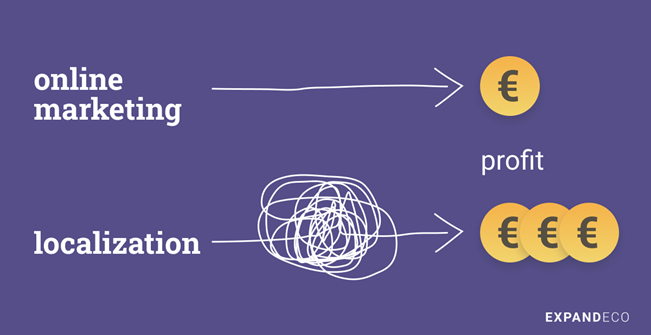“You may have thought that translation = localization, but it doesn’t. Translation itself is the translation of a text from one language into another in such a way that the meaning of the word is preserved. The translator must have a perfect command of both languages and be familiar with the subject he or she is translating. Localization is a complex process and translation is only part of it. We take into account different customs, dialects, culture, legal norms and other things when localizing. The aim of localization is to make the customer think that he/she is shopping on the "parent" site and not at all recognize that it is a translation. To give the impression that it is a source text, not a translation,"








